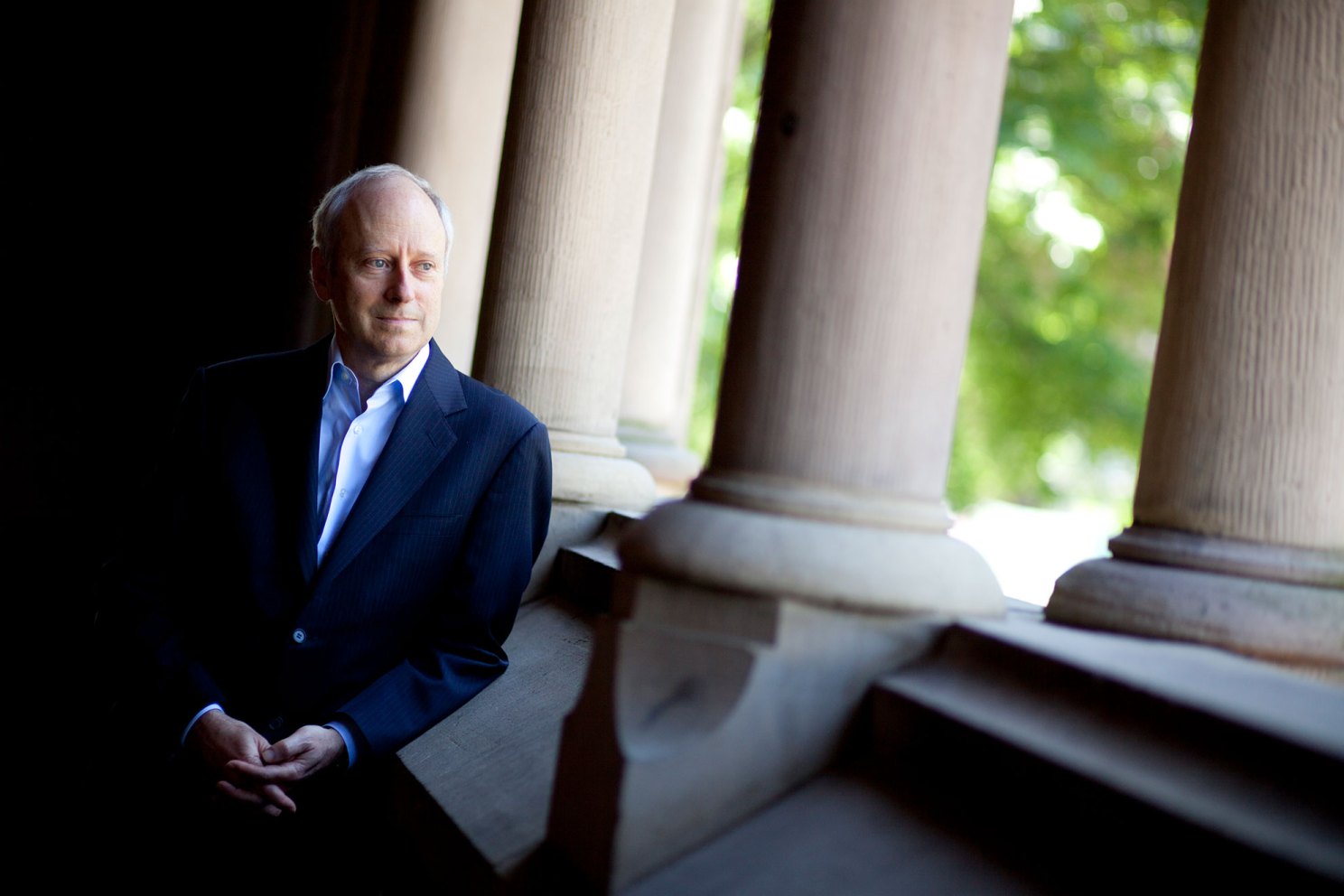‘Justice’ professor Michael Sandel wins $1M philosophy prize

Michael J. Sandel, a political philosopher, received the honor from the Los Angeles-based Berggruen Institute.
Stephanie Mitchell/Harvard Staff Photographer
Michael J. Sandel, the Anne T. and Robert M. Bass Professor of Government, received one of the world’s top philosophy honors on Tuesday.
The Los Angeles-based Berggruen Institute named Sandel, a political philosopher, the 2025 laureate of its $1 million Berggruen Prize for Philosophy & Culture. The annual award, juried by a panel of international scholars and writers, recognizes top thinkers whose contributions have lasting intellectual and practical impact worldwide.
“I’m honored and delighted to receive the Berggruen Prize, because it celebrates and affirms the role of philosophy in the academy, and in public life,” Sandel said. “At a time when technology and the economy dominate public attention, we can easily neglect questions of meaning and purpose: What is a good life? What is a just society? How can we reason together despite our differences? In fraught and fractious times, philosophy can recall us to questions of ultimate human significance.”
Sandel began teaching at Harvard in 1980. Generations of graduates have learned to apply classical theories of moral reasoning to ethically charged political issues in his legendary Gen Ed “Justice” course. A filmed version, freely available online since 2009, has reached a global audience of tens of millions with lectures covering everything from taxation to free speech, from surrogacy to reparations. Both formats equip students to engage in reasoned civic discourse across cultural and ideological differences.
Sandel’s books on morality, markets, and democracy have been translated into more than 30 languages. “Justice: What’s The Right Thing to Do?” (2009), a global bestseller, calls for a morally engaged public discourse equally open to spiritual and secular thought. Recent titles, including “What Money Can’t Buy” (2012) and “The Tyranny of Merit” (2020), demonstrate the corrosive effects of unfettered faith in free markets and today’s ostensibly talent-based system of economic advancement. His classic work “Democracy’s Discontent,” recently published in a new edition (2022), shows how U.S. society reached its current moment of democratic peril, and how citizens can renew the project of self-government.
Dedicated to engaging a broader public, Sandel’s BBC Series “The Global Philosopher” explores the ethical issues behind the headlines with participants from around the world. One episode, recorded in India, explored violence against women following a high-profile gang rape and murder in 2012.
In a separate series for Japan’s NHK national television network, Sandel led students from China, Japan, and South Korea in a debate about whether today’s generation bears moral responsibility for historic wrongs. In Brazil, he reached 19 million viewers by leading a discussion on corruption and the ethics of everyday life.
“Michael Sandel has been the model of a political philosopher, teacher, and public intellectual during his long and storied career at Harvard,” said Sean Kelly, dean of Arts and Humanities and Teresa G. and Ferdinand F. Martignetti Professor of Philosophy. “His courses have gathered thousands of students together in conversation about deep issues concerning justice, meritocracy, equality, and other organizing principles of modern society. His books and lectures have brought these conversations out into the world. We are better as a society for his contributions.”
“Professor Sandel’s work has left a profound mark on the global intellectual landscape,” said Erasmus University Rotterdam philosophy professor Yuk Hui, who chaired the Berggruen Prize jury. “His critiques of neoliberalism, meritocratic ideology, and populism speak to the most urgent questions of our time.”
Established in 2016, the Berggruen Prize for Philosophy and Culture recognizes individuals who profoundly shape ideas about humankind and global communities. Previous winners include philosophers Charles Taylor (2016) and Peter Singer (2021), U.S. Supreme Court Justice/gender equality litigator Justice Ruth Bader Ginsburg (2019), and Harvard Medical School Professor/Partners In Health co-founder Paul Farmer (2020).
Sandel plans to donate a portion of his prize money to the Babayan Project, a multilingual civic education initiative for children he co-founded in 2015 with his wife, Kiku Adatto, a Scholar in Residence at the Mahindra Humanities Center and social studies lecturer. With this initiative, the goal is expanding access to philosophy across borders as well as age.
“The project uses storytelling and music to engage children in ethical reasoning and civic dialogue,” Sandel explained.




